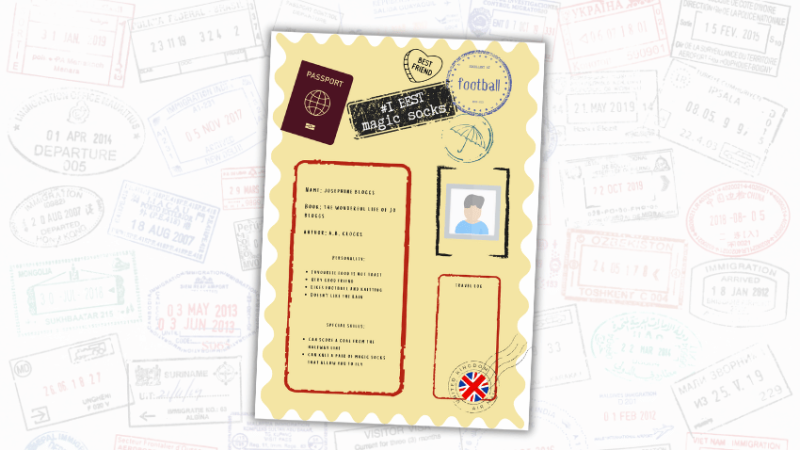Mantle Of The Expert Isn’t Just For Drama Buffs, You Too Can Get In On The Act

Even those of us who dread making a show of ourselves can find the perfect role for it in our classrooms

- by Tim Taylor

One afternoon, about halfway through my PGCE course, my fellow trainee teachers and I were asked to meet to do some drama. The tutor explained that drama was about ‘self-expression’ and being ‘in-role’ (two thoroughly gag-inducing terms) and asked us to spread out. What happened next still makes my toes curl.
Beside the tutor was a DVD player, and as she pressed the play button with a flourish the cherubic voice of a young Aled Jones warbling Walking in the Air came out of the speakers.
“Now,” said the tutor, “I want you to imagine you are a snowflake floating through the night sky. Some of you will be moving fast, blown hard by the wind, while others will be floating gently about in the air. Some might cluster together in flurry, while others will fly on their own. Off you go!”
What followed was a blur of embarrassment. Never light on my feet, I plodded round the room along with 30 other adults all doing our best to avoid eye contact.
On with the show
I don’t suppose every PGCE student can have been exposed to such excruciating torture, but this session, and others like it had cemented a pathological disdain for drama in all its forms. So when I started teaching, it’s safe to say it was not high on my list of must-use techniques.
This, however, was all about to change. The school I ended up working in was run by a dynamic headteacher called Sue Eagle, who believed passionately in making learning interesting and spent every spare penny on in-service training. It was the early 90s and there was a buzz about education. We all wanted to learn new things.
One such training day was on Mantle of the Expert, and our trainer, Luke Abbott, was well aware that many teachers had bad experiences of using drama at school. He told Sue the best way, in his opinion, to introduce the approach was to demonstrate it with a class of children first ‒ liking the idea, she volunteered my class of Year 3s.
Luke arrived on the arranged day and met my class in the hall. “Hah,” I thought, “I know where this is going,” and looked around for the DVD player. Thankfully, there wasn’t one to be seen. Instead Luke asked the children to sit on the floor, where he joined them.
“Hello,” he said, “My name is Mr Abbott, and I’d like to tell you about a story. It starts in a village, just an ordinary place, with a church and a post office, and a little school, and several rows of cottages. I don’t know how many people live there, but I could guess about a hundred. Anyway, one day a terrible thing happened. The people of the village still argue about when it first started, but the children are sure it began when they heard the noises in the playground. They thought it might be the sound of passing lorries, but one of them noticed the noises weren’t coming from the road, but were coming from under the ground.”
My hard-to-engage class were transfixed, their eyes glued to Luke’s face. “What,” he asked, “do you think was making the noises?” A forest of hands shot up and the students flooded him with suggestions. Luke listened carefully, nodding and asking for more details.
At the end he said: “These are the just the kinds of thoughts that ran through the minds of the children. But none guessed the truth, and when it happened again, it happened at night. One minute the people of the village were quiet asleep in their beds, the next they were all swallowed up by a giant hole. And that’s where they are now, trapped and in need of a rescue team.”
Down the rabbit hole
He stopped for a moment, fixed them with a quizzical stare and began to roll up his sleeves. “Would you like to come into the story?” he asked, “It would mean working as the rescue team.” “Yes,” they cried. “Good,” he said, “Because there’s a lot of work to do. The first job is to get our rescue vehicles packed and ready to go. I guess we’re going to need the helicopter, and the fire engine. Who’d like to work on those? What about the ambulances? Why don’t you grab a sheet of paper off that pile and draw the rescue vehicles you think we’re going to need for this job, don’t forget to load them up with all the equipment and we’ll meet back here as soon as we’re ready.”
And off they went. There were no giggles, no arguments about who gets to use the pens, just a fired-up group of young people eager to get on with a task that made sense to them and had a purpose they understood.
Within 30 minutes I too was involved, as a villager trapped under a pile of rubble. The team had found me using their remote-control robot and were conversing with me on a walkie-talkie. “Are you injured?” they asked. “Yes,” I replied, “I can’t move my legs, they’re trapped and I’m starting to feel faint. Can you help me?”. “Don’t worry,” they said reassuringly, “We’ll be with you very soon.”
That was me; doing drama, and I didn’t feel stupid. Luke wasn’t asking me to act or pretend to be injured, he didn’t want me writhing in agony or pleading for help. “Just be yourself,” he said. “Let the children use their imagination.”
Classroom drama, it turned out, wasn’t about ‘self-expression’ or being ‘in-role’, it was about giving the students something to think about. The sort of thing we teachers do every day, just in a different form. I could do that.
And I did. For the next 15 years I worked with Luke whenever I could: watching him teach over and over again, writing down everything he said, and did, every strategy he used, every question he asked, until I learnt how to do what he could do. This was Mantle of the Expert.
It wasn’t something that only drama teachers could do, it wasn’t only for the initiated, it wasn’t something you had to be an extrovert or an actor to use, it was something practical and possible, something that could be learnt over time, and something that transformed my teaching for the better.
As a result of my studies I’ve written a book, it’s the book I would’ve wanted to read that day after watching Luke with my class, and if you’re interested in working with drama, but you’re not a drama expert, you might want to read it too.
ASSUME THE MANTLE
Kick-start your role-play driven classroom with these three ideas from Tim
1 Fairy Tale Problem-Solvers Expert team: Problem-solvers Clients: Different clients from fairy tales and traditional tales Commission: Solving problems for fairy-tale characters such as Mrs Pig who doesn’t know what to do with her boys.
2 The Roman Box Expert team: Archaeologists Client: Local museum Commissions: Examine contents of a Roman security box, re-create the stories behind the artefacts for the museum and research and communicate to visitors the history of the box and the historical context of the Roman invasions and the Iceni revolt.
3 Pit Inspection Team Inquiry questions: What were working conditions like for children working in Victorian mines? Expert team: Pit inspection Client: Earl of Shaftesbury Commission: To carry out a full inspection of the mines, discover the working conditions of the children working there, and to report back to Parliament with their findings.
Get the complete lesson plans at imaginative-inquiry.co.uk.
Tim Taylor is a freelance teacher and author of A Beginner’s Guide to Mantle of the Expert. He is a visiting lecturer at Newcastle University and a runs training courses in Mantle of the Expert.










